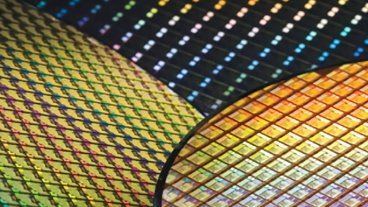Analyst Ming-Chi Kuo believes that weakness in Apple hardware demand through 2024 is causing a ripple effect that is reaching chip manufacturers, with orders for equipment falling by 30% in the next year.
In a post on Medium on Wednesday, analyst Ming-Chi Kuo is examining extreme ultraviolet (EUV) equipment sales to chip manufacturers. Specifically, ASML may cut production of the expensive gear because Apple and other firms may not need as many chips as the industry forecast.
"In 2023, Apple's MacBook and iPad shipments declined significantly by approximately 30% and 22% to 17 million and 48 million units, respectively," Kuo writes. "The sharp decline is attributed to the end of work-from-home (WFH) demand and diminishing user appeal for the new specifications (Apple Silicon and Mini-LED)."
He goes on to say that there is a "lack of growth drivers" for MacBook and iPad.
This, paired with Qualcomm's lower demand for 3nm, plus lighter demand for Intel's 20A process and Samsung's 3GAP+, is a problem. The main DRAM manufacturers aren't expected to expand capacity until 2025 at the earliest and 2027 at the latest, depending on market conditions.
Apple has noted a contraction in the PC market due to higher-than-expected buys during the height of the COVID pandemic. It has weathered the storm better than competitors, but it remains unclear how long the demand will last.
Apple's M3 chip was originally rumored to arrive in April 2023, then fall 2023. More recent rumors peg the new Apple Silicon Mac chip based on a 3nm process to arrive in 2024, which is reasonable considering that Apple appears to have purchased all of TSMC's 3nm chip production through the end of 2024 for the iPhone.
 Mike Wuerthele
Mike Wuerthele








 Marko Zivkovic
Marko Zivkovic
 Wesley Hilliard
Wesley Hilliard
 Amber Neely
Amber Neely

 Malcolm Owen
Malcolm Owen
 William Gallagher
William Gallagher

 Christine McKee
Christine McKee




-m.jpg)



8 Comments
I think besides the economy the another part of the problem is chips have become so fast increases in performance are not noticeable by the average user. Companies especially Apple kept creating background crap/apps to try and chew up some CPU cycle to create a need for more powerful chips, but the chips are handling it all just fine. The only people really benefiting are people working in production level video. Even people working in audio the faster chips are of little benefit. I think this is why Apple is finally trying to get into the game market. Hardcore gamers want and are willing to spend money on bleeding edge tech so Apple needs a presence in that market to sell its next generation chips.
So selling more powerful chips are becoming harder sell.
Apple is doomed again? Despite the fact that Apple appears to have hit a home run with the iPhone 15 Pro, and 15 Pro Max, and the demand in China seems to be strong,
And you know Apple has hit a home run, when the comment sections are lit on fire with Samsung and Pixel users.
https://www.youtube.com/watch?v=q3iyXdebOvg
https://www.youtube.com/watch?v=vUn68iFMNXY
https://www.youtube.com/watch?v=BOZUfWcGCxko
For the majority of the customers not involved with high multi thread projects, their interest is in the single core speed of the M series because that is where they are operating most of the time. There is a less than 10% increase in the single core speeds going from M1 to M2. However, some of the same level M2 chips grabbed access to more memory at the same level.
So one wonders if TSMC can find another 10% increase in single core speed for the M3. An increase of 20% from M1 to M3 could possibly entice some folks to consider upgrading. However, we are rapidly approaching the point where, as humans, we are unable to perceive the speed increases. Is it happening now in a quarter of a blink of the eye versus half a blink of the eye?
Expectations are high for M3 because of moving to 3nm. If M3 performance doesn't meet with people's expectations (realistic or not), then sales will certainly be impacted.
M3 needs better GPU performance, Thunderbolt 5, and improved battery life all at the same time if its going to motivate anyone to upgrade from M1.
Can we get some second opinions on these forecasts and predictions? This is starting to seem like a Ming-Chi Kuo blog site.